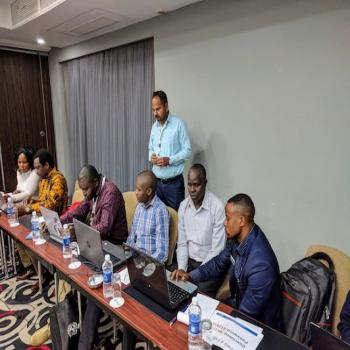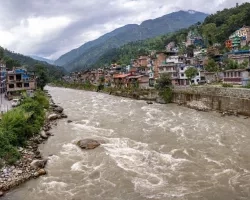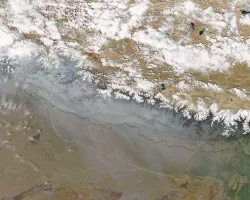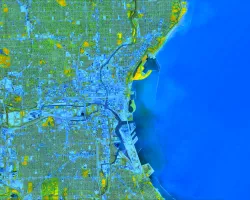The ability to transform data into actionable information is often a critical missing link for decision makers in the developing world. To close this gap, SERVIR hosted a series of regional workshops in Kenya, Tanzania, and Zambia.
The ability to transform data into actionable information and obtain easily accessible, analysis-ready Earth observation (EO) data is often a critical missing link for decision makers in the developing world.
“Data and skills are the two most critical needs of a hydrometeorologist in order to successfully accomplish his or her duties. In our region, accessing data can be a challenge, and when it is possible, still requires expertise. Our partnership with UCSB and hydromet services agencies in the Eastern & Southern Africa region addresses these challenges quite remarkably. The partnership is providing key skills that are necessary to realizing maximum potential in the use of the data sets, training technical users in different applied skills like climate seasonal scenarios development and hydrological modeling. SERVIR will continue to ensure that data and skills gained so far are sustained over the long term and that agencies in the region continue to use these to inform decisions made by various stakeholders to address developmental challenges experienced in different sectors.”
-- Denis Macharia, SERVIR E&SA Weather and Climate Lead
To close this gap, the SERVIR Applied Sciences Team (AST) at the University of California, Santa Barbara’s Climate Hazards Center (CHC) collaborated with SERVIR-Eastern and Southern Africa to co-host a series of regional workshops in Kenya, Tanzania, and Zambia. These trainings focused on enabling local and national stakeholders to confidently and effectively access and utilize data sets and models to support food security and water resource-related decisions.
The first workshop (January 30 to February 2, 2018, in Dar es Salaam, Tanzania) trained partners in the use of web applications to access relevant datasets and how to apply that information to seasonal climate scenarios, agricultural drought monitoring, water resource management, and index insurance. The following workshop (September 4 - 7, 2018, in Lusaka, Zambia) focused on further enhancing climate services for the region.
Together, these events showcased how to access and use tailored EO datasets, such as the Climate Hazards Group InfraRed Precipitation with Station data(link is external) (CHIRPS(link is external)), leverage tools like the Early Warning eXplorer(link is external) (EWX) and ClimateSERV(link is external), and incorporate modeled data from the Famine Early Warning Systems Network (FEWS NET) Land Data Assimilation System (FLDAS(link is external)) into decision making processes. Exposure to these workshop training materials resulted in adoption across countries and disciplines, with users applying these resources for their own needs.
These trainings culminated in enhanced capacity for over twenty agrometeorological decisionmakers to use EO data in addressing water resource and agricultural management decisions in Africa. In addition, several attendees mentioned bringing back lessons learned to train colleagues, exemplifying the “train the trainer” approach and increasing workshop impact and reach. In the words of one workshop participant, “I am using some of the data sets introduced (during the training) in my day-to-day climate analyses, including forecasting. In addition, I have shared the tools with my colleague, who works in the agro-climate section, so that they can use the information from these tools to advise farmers and the ministry.”
Through the continued collaboration between the SERVIR AST at the University of California, Santa Barbara’s Climate Hazards Group (CHG) and SERVIR-Eastern and Southern Africa, it is now possible to provide critical guidance to those with the direct, immediate ability to make decisions. By offering such trainings, data can be transformed into relevant, readily-applicable information to better inform food security and water resource-related decisions.
Denis Macharia (RCMRD), Michael K. Ngugi (RCMRD), Stella Masese (RCMRD), Shraddhanand Shukla (UCSB), Gregory Husak (UCSB), Marty Landsfeld (UCSB), Sari Blakeley (UCSB), and Emily Adams (NASA SERVIR) have provided critical support to these events, but are also supported by a much larger team. For more information about SERVIR-Eastern and Southern Africa(link is external), the Climate Hazards Center at UCSB(link is external), FEWS NET(link is external), or RCMRD(link is external) please visit our websites.
The team would also like to thank USGS Earth Resources Observation and Science Center (EROS(link is external)) for their support.




